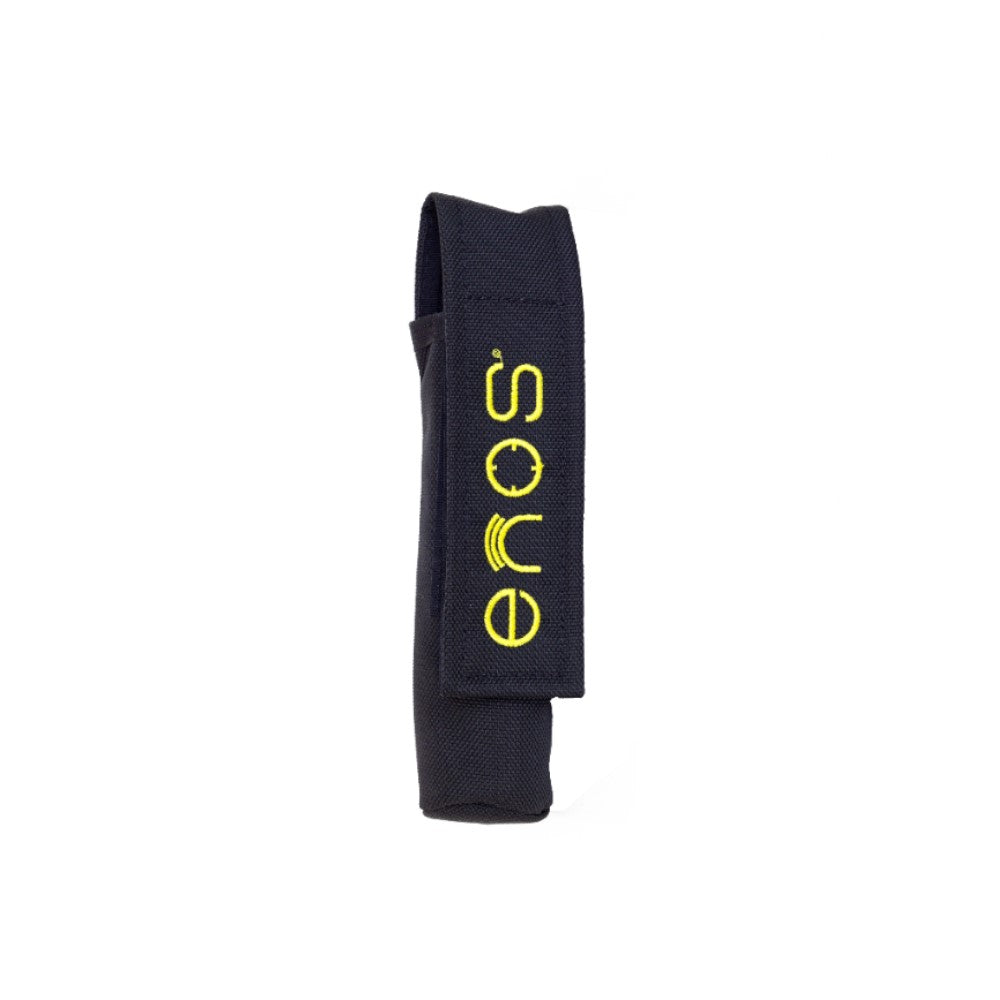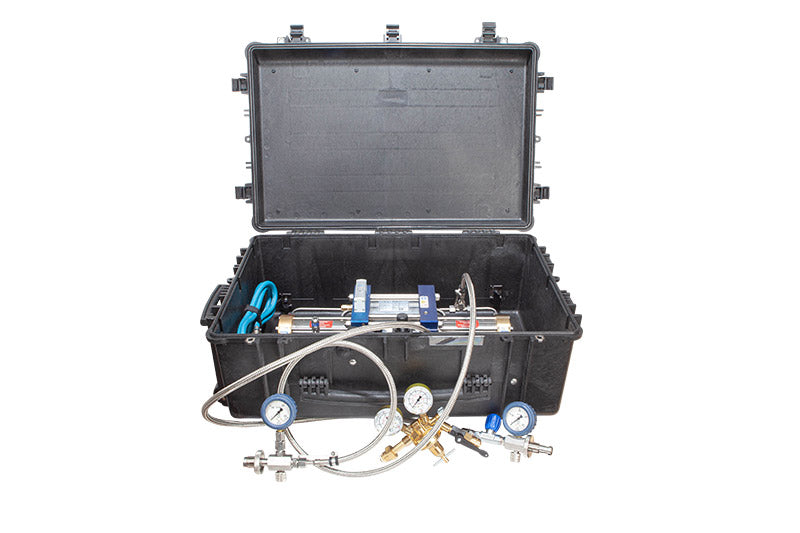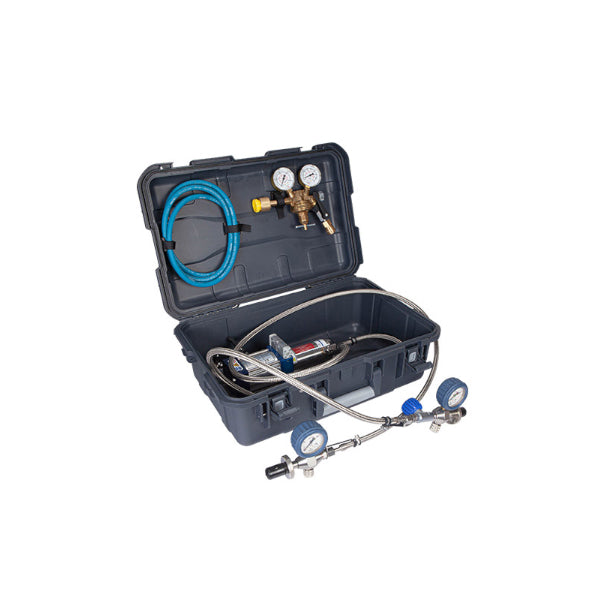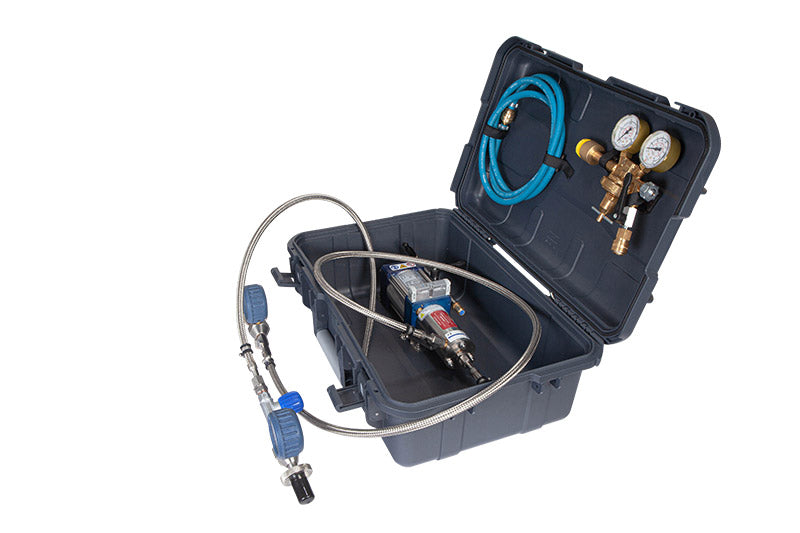

NRC International Gmbh
ETX, transmitter ENOS, pressure tight to 100 meters (330 feet)
Permanent updates, far visible LED
The ENOS transmitter broadcasts every 20 seconds its signal and the crew always knows the current position of the diver.
These short transmission intervals ensure reliable emergency call transmission even in high seas:
There is an LED on its head that flashes regularly during use and is visible from afar. This also increases security.
It also shows the battery status and the function mode when in use.
Easy to use
To switch on the ENOS transmitter, its red foot is rotated 180° and its function is activated. There are no other switches or the like, which rules out a fault condition.
After switching on, the asymmetrical switch position clearly shows "ON".
After that, all you have to do is hold it up. This can also be done by a diving buoy.
Transmission range up to 10 kilometers / 5.6 nautical miles
Depending on how high the radio receiving antenna is mounted on board, the ENOS emergency call can reach up to 10 kilometers (5.6 NM).
Why batteries instead of rechargeable batteries?
The ENOS transmitter is powered by Lithium AAA batteries, which are widely available around the world. You can change the battery yourself, it is not necessary to send it back to us!
The use of batteries has unbeatable advantages compared to rechargeable batteries:
- Batteries lose power over time, even when not in use
- Batteries must be charged regularly and permanently
- A nightly, unnoticed power failure has a negative impact on the capacity of the battery
The ENOS transmitters are supplied with lithium batteries containing a Capacity guarantee of 18 years to have! This means that the batteries will continue to provide reliable full performance even after many years. A loss of performance is not to be feared and the charging capacity does not have to be constantly checked.
World record in running time
The running time of the ENOS transmitter is 170 hours = one week!
This is a world record among emergency call transmitters.
This means he always has enough energy, even after several rescue operations, because ENOS missions usually only last a few minutes. When the batteries need to be changed can be easily recognized by the flashing signals of the LED and is described in the operating instructions.








